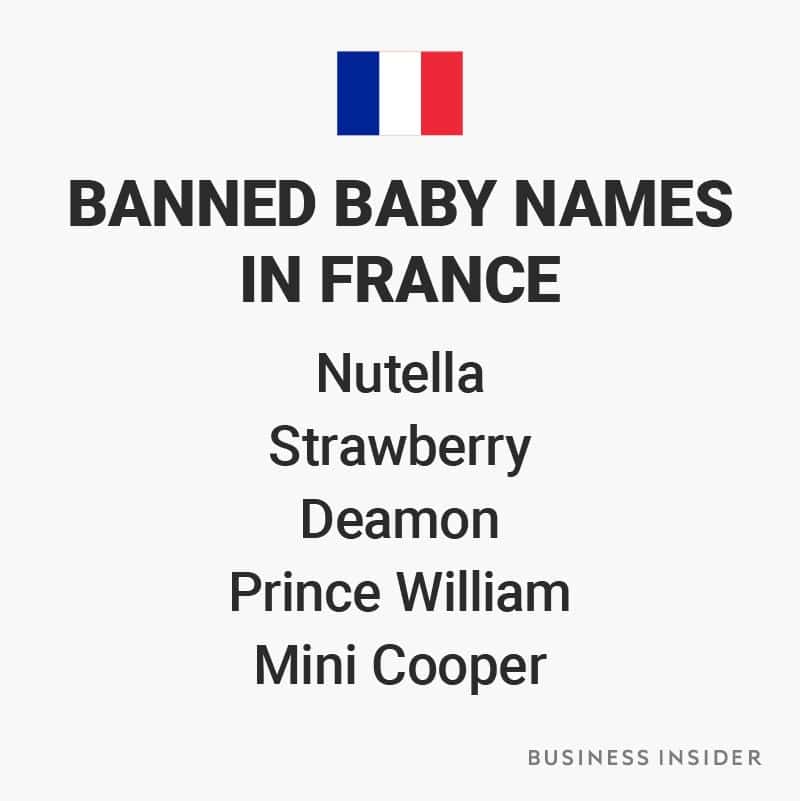A Warm Welcome to Prospective Parents!
Hey there, soon-to-be mommies and daddies! Are you in the delightful yet dizzying phase of picking the perfect name for your bundle of joy? You’re probably combing through dozens of baby name books and endlessly scrolling through online forums to find the one. But wait, did you know that not all names are fair game? That’s right! Around the globe, certain names are actually a no-go – legally speaking. Navigating the waters of banned baby names can be tricky, but fear not! Here’s your trusty guide to ensuring your baby name is not only charming but also, well, legal.
Why Are Some Names Banned?
Curious why some names aren’t allowed? Different countries have different rules, but most of the time, it’s about protecting the child from potential embarrassment or misunderstanding. In some countries, names that are considered offensive or are typically surnames, can be rejected by the authorities. Other times, names that might cause gender confusion or are too extravagant might get the thumbs down. So, let’s explore what’s in a name, or rather, what can’t be!
Understanding the Legal Landscape of Names
As you daydream about the perfect name, it’s important to get to grips with the legal landscape. From New Zealand to Denmark, laws vary wildly regarding what’s considered an acceptable moniker for your mini-me. In some countries, like Germany, names must clearly indicate the gender of the child and be recognized as a first name. Meanwhile, in countries like Mexico, names that could be deemed derogatory or pejorative are off-limits. Our guide will help you understand these international nuances to keep your baby’s name within the bounds of the law.
Banned Names from Around the World
Okay, so let’s dive into the specifics. There are some fascinating (and sometimes amusing) examples of names that have been given the red light by governments across the planet. For instance, in Sweden, a couple’s attempt to name their child ‘Brfxxccxxmnpcccclllmmnprxvclmnckssqlbb11116’ was, unsurprisingly, rejected. It’s hard to imagine calling out for dinner with that tongue-twister! And in the beautiful lands of Italy, the name ‘Venerdi’ (Friday) was also disallowed after a judge felt it would expose the child to mockery.
The list doesn’t stop there. In New Zealand, the name ‘Talula Does The Hula From Hawaii’ might sound like a whimsical adventure, but it was deemed as a no-go as it was not in the best interest of the child. France, famously protective of its language and culture, has a history of banning names like ‘Nutella’, ‘Strawberry’, and even ‘Mini Cooper’. Not so sweet for dessert or car enthusiasts!
It’s clear that there’s a delicate balance between picking a name that stands out and choosing one that will help your child navigate life without additional complications. But don’t let these prohibitions stifle your creativity! There are still plenty of unique and beautiful names that are perfectly permissible. Our guide is here to help you spot potential pitfalls before you fill out the birth certificate.
Tips for Choosing a Legally Acceptable Baby Name
How do you ensure that your chosen name won’t be subject to a veto? Here are some quick tips:
- Research Local Laws: Before settling on a name, check the naming laws in your country or the country where your child will be registered.
- Consider the Implications: Think about how the name will travel through life with your little one. Will it cause unnecessary complications or embarrassment?
- Stay Clear of Symbols and Numbers: While it might be tempting to go with something out of the box like ‘4Real’, most authorities won’t smile upon numerical or non-alphabetical characters.
As you navigate this fantastical journey of naming your child, remember that a name has the power to become an intrinsic part of their identity. It’s worth taking the time to choose wisely and legally. And keep in mind, while some names might be off-limits, there’s still a world of beautiful, meaningful names waiting for you to discover.
Stick with us as we continue to unfold the mysteries of banned baby names, and we’ll make sure you’re armed with knowledge, inspiration, and confidence as you make this all-important decision for your little one. What’s in a name? Quite a bit, it turns out – but worry not, you’ve got this!

5 Things Parents Should Know in Preparing for Banned Names
1. Cultural Sensitivity and Respect
One of the fundamental aspects when considering a baby name is understanding its meaning and implications in different cultures. What might be a trendy and cool name in one country could be considered disrespectful or offensive in another. The key is to research thoroughly and show cultural sensitivity. Bear in mind that a name isn’t just a label, it’s a part of your child’s identity and can have deeper societal connections that you need to respect.
2. Avoiding Legal Battles and Paperwork Hassles
Choosing a banned name can lead to complicated legal proceedings and a lot of wasted time grappling with government paperwork. To bypass this frustrating process, it’s crucial to be familiar with your country’s naming laws and regulations. Doing the legwork ahead of time can save you from potential heartbreak and the need to return to the drawing board to select an alternative name if your original choice is not approved.
3. Future-Proofing Your Child’s Name
While it’s tempting to choose a unique or outlandish name to stand out, it’s vital to consider the long-term impact on your child. A name should be something that grows with them, opens doors rather than closes them, and doesn’t lead to teasing or bullying. Aim for a name that’s unique but also one that your child can wear with pride at every stage of life.
4. Understanding the Reasons Behind the Rules
Many names are banned for a reason, often because they’re not in the child’s best interest. Authorities look to prevent names that can cause confusion, embarrassment, or are outright absurd. But understanding the reasoning behind these rules could also inspire a sense of creativity within the boundaries, leading you to a name that is as meaningful as it is lawful.
5. Documenting Your Choice
After you’ve decided on a name, it is a smart move to document your thought process, the name’s origins, and what it means to you. This not only helps in case you need to justify your choice to authorities, but it also provides a beautiful story to tell your child about how their name was chosen with love, care, and consideration.
Armed with these insights, you’re now ready to select a name that will not just highlight your child’s uniqueness, but also keep you worry-free of legalities. Happy naming!
See more great Things to Do with Kids in New Zealand here. For more information see here
Disclaimer
The articles available via our website provide general information only and we strongly urge readers to exercise caution and conduct their own thorough research and fact-checking. The information presented should not be taken as absolute truth, and, to the maximum extent permitted by law, we will not be held liable for any inaccuracies or errors in the content. It is essential for individuals to independently verify and validate the information before making any decisions or taking any actions based on the articles.




